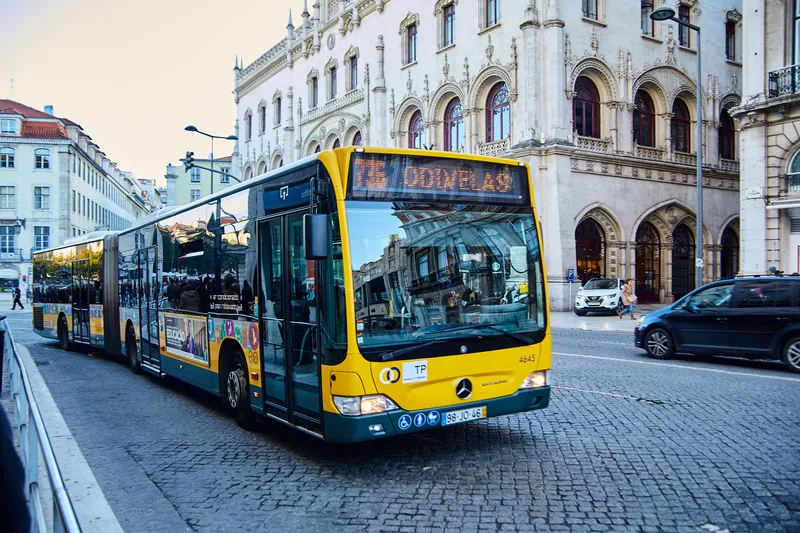
Optibus has opened an office in Lisbon, Portugal, where it says around half of the public buses are already being planned and scheduled using its products.
The public transportation routing specialist says networks across the country are "undergoing exciting changes to encourage ridership and improve sustainability, and Lisbon is a hot spot of mobility advancements".
The Portuguese capital will host the ITS European Congress 2023, and the European Commission recently announced plans to improve cross-border transportation by adding new train services from Lisbon to A Coruña and Madrid in Spain.
"The transition to electric bus fleets has ramped up with Flixbus’ launch of Portugal’s first intercity electric bus service alongside Carris’ plan to bring 30 more electric buses, manufactured locally by CaetanoBus, to Lisbon this year," the company says in a statement.
"In addition, investments in bus rapid transit (BRT) can be seen across Coimbra, Porto and Braga. The VoxPop project continues to explore how digitisation and data can enable user-centric services and more efficient public transportation planning and operations."
“Public transportation is evolving at a rapid pace in Portugal," says Dave Joshua, Optibus general manager for Europe, the Middle East and Africa.
Headed by Carolina Simões Monteiro Pires, director of partnerships and cities, southern Europe, it will focus on strengthening Optibus’ relationship with the local public transportation industry and improving operators’ and agencies’ access to advanced technologies.
“We are proud to be on the ground in Lisbon and to expand access to advanced technologies that will make Portugal's public transportation more sustainable and efficient than ever,” said Amos Haggiag, Optibus CEO and co-founder.
Optibus has already opened a southern Europe HQ in Rome and a Nordics HQ in Stockholm.
The firm says Viação Alvorada started using Optibus software after winning a tender from the AML (Metropolitan Area of Lisbon), and achieved 90% efficiency for vehicle and duty schedules in three months, saving €600,000.
Optibus' new office is, appropriately, near 'plenty of bus stops', the firm says.









